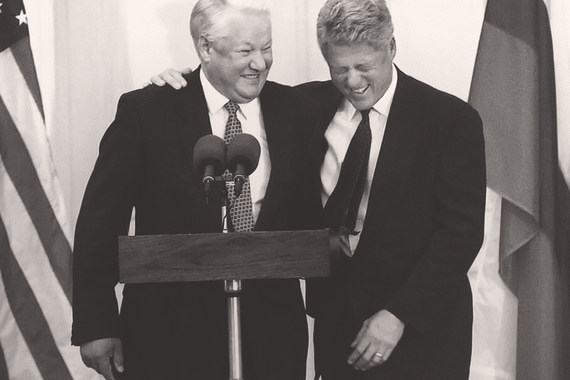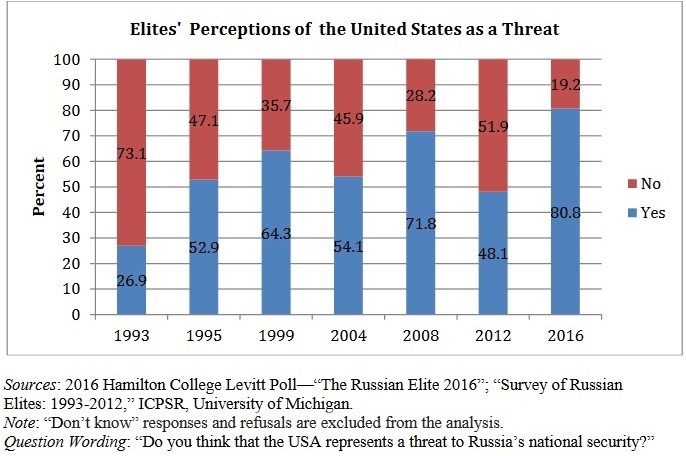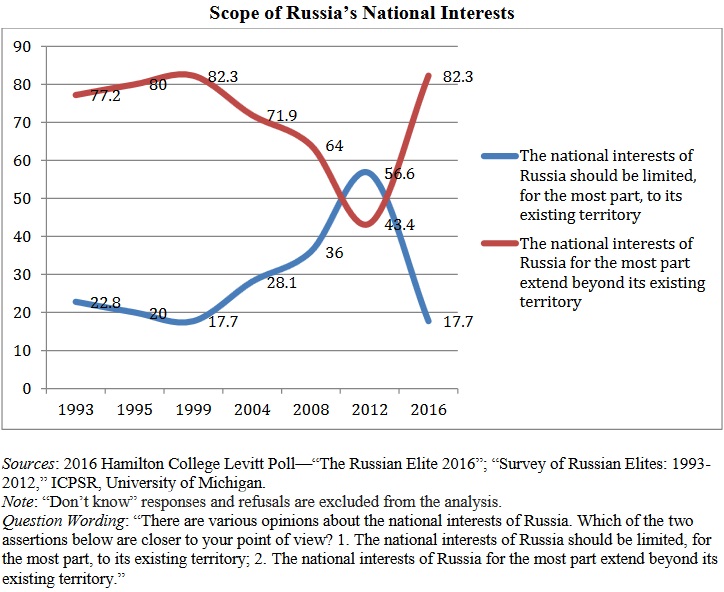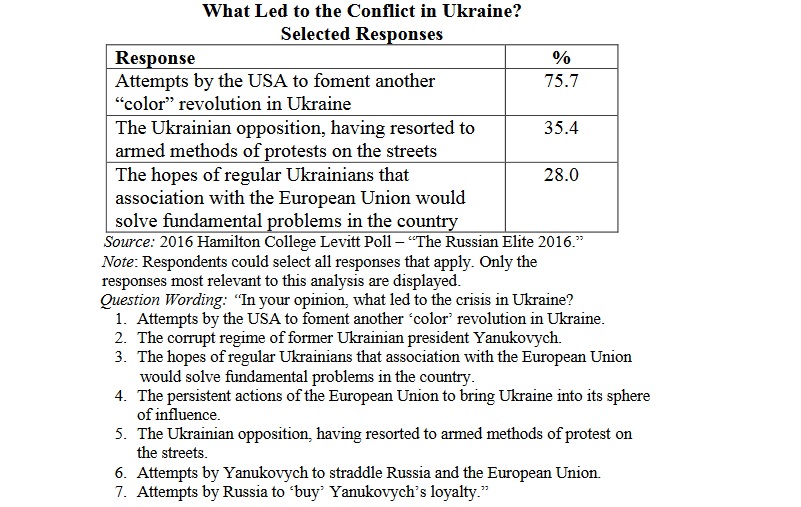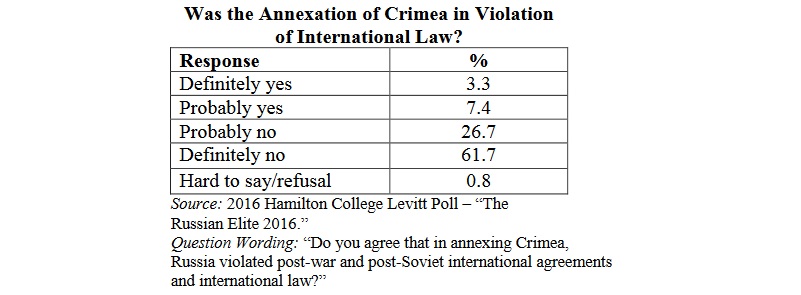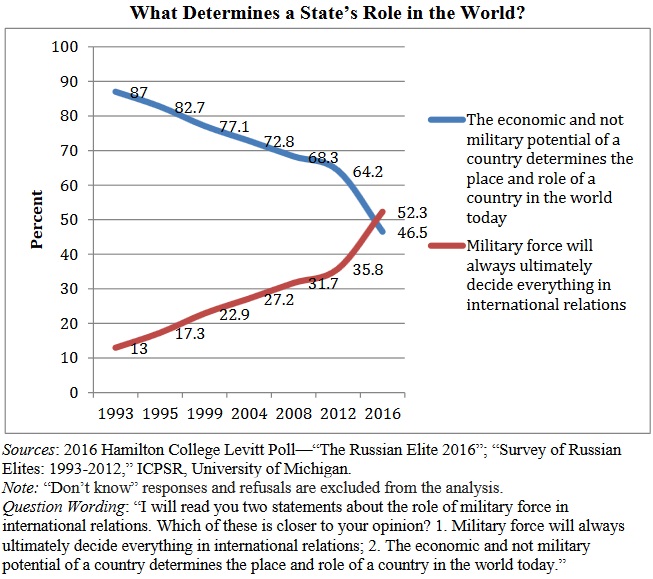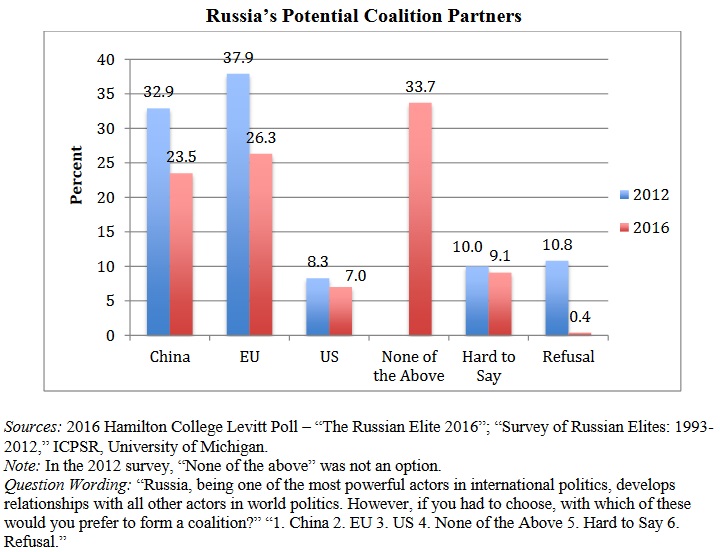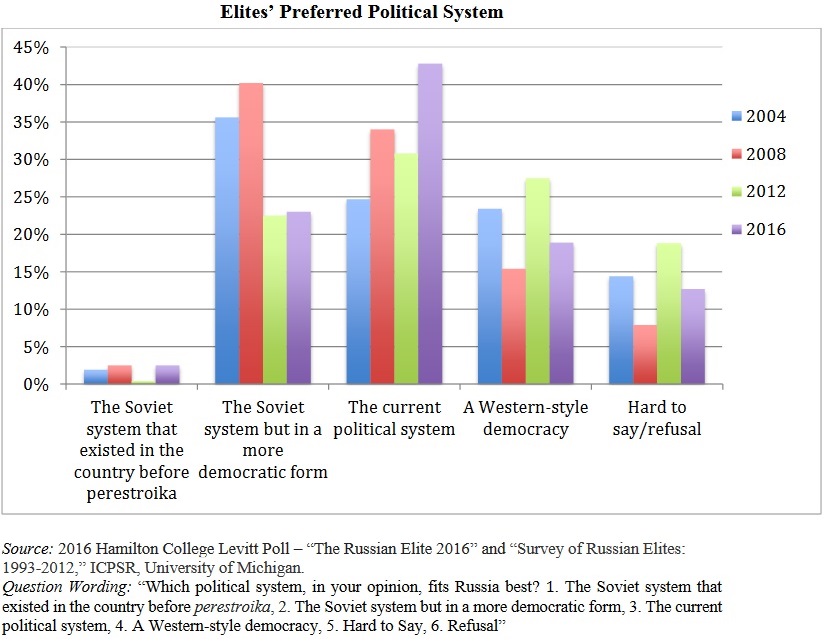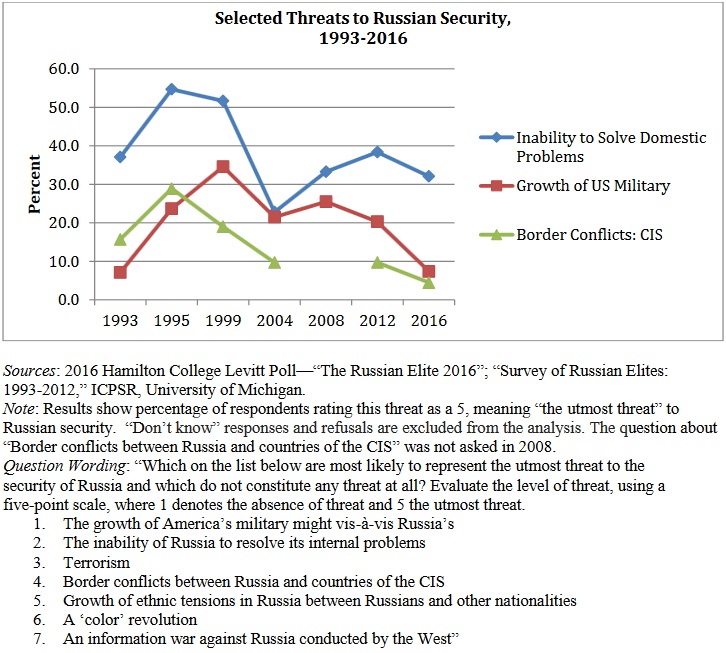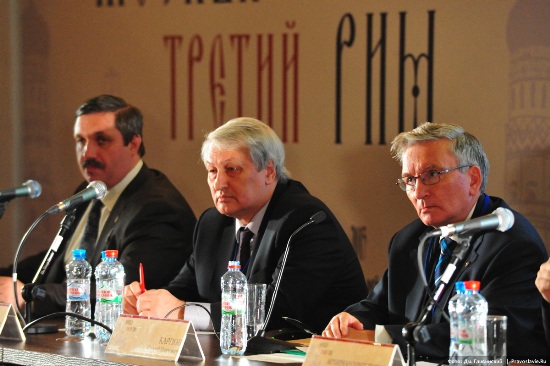Members of the Russian elite became anti-American sooner and are more committed to anti-Americanism now than is the rest of the Russian population, according to a new survey conducted by scholars from Hamilton College in the US and reported yesterday in “Vedomosti.”
In its write-up of the survey’s results [see the original report here: “The Russian Elite 2016: Perspectives on Foreign and Domestic Policy] “Vedomosti” notes that “in 2016, the level of anti-Americanism among representatives of the Russia elite achieved the absolute maximum” of 88 percent.
Moreover, it says, the elite’s support for “militarist and expansionist ideas … has significantly grown” to 82.9 percent as has the share of those “who consider the zone of the national interests of Russia extends beyond its borders.” And for the first time, those who believe military force is the most important tool outnumber those who think the country should rely on economic power.

Members of the Russian elite, this and other surveys show, are less likely than ordinary Russians to view the annexation of Crimea as a violation of international law and more likely to accept the notion that “the main goal of the Russian operation in Syria is the neutralization of the terrorist threat.”
The Hamilton College survey this year also found that elites are “united around Vladimir Putin and do not see a chance for his replacement in the next ten years. Further, a sizeable share of them, more than in any of the earlier surveys this college has made, say that the current Russian political system is “the best.”
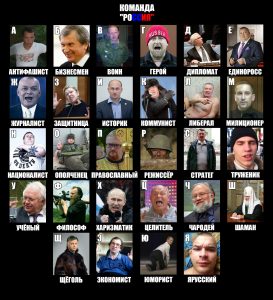
A major reason that the elites feel this way, the study and the paper suggest, is that these views reflect ones they have long held and have promoted for the rest of the population rather than being views that reflect the regime’s propaganda efforts. The elites, Eduard Ponarin of the Higher School of Economics says, are defining today’s “’party line.’”
“Their worldview,” “Vedomosti” continues, “is the result of their earlier disappointment that Russia did not become a full-fledged member of the world community” after 1991, views that were intensified by the bombing of Kosovo in 1998 and only after that spread to the broader parts of the Russian population.
The Moscow paper cites Denis Volkov of the Levada Center on why the anti-Americanism of the elites has spread so quickly to the rest of the Russian population: “the weak differentiation of the Russian elite and negative selection (loyalty instead of competence)” mean that the two are less different than one might expect.
At the same time, however, “Vedomosti” suggests, members of the elite are more likely to feel that expressions of support for an anti-American position are “a ritual of confirming their loyalty to the political regime” even though the majority of them “sincerely share these convictions” and their support for Putin has grown as he has realized their program.
But, the Moscow paper concludes, “these attitudes are leading the country into an economic dead end, and that is obvious for the elites as well. The inability to solve domestic problems is the main threat for Russia, according to this survey; in second place and much lower down is terrorism.”
Related:
- New climate of fear makes Russian polls ever less reliable, Moscow sociologist says
- Kremlin disinformation and Ukraine: The language of propaganda
- Andrey Zubov: Russians regret taking over Crimea, but haven’t repented yet
- Crimean Anschluss opened way for justification of Stalin and Soviet system, Zubov says
- “DNR” poll finds population doesn’t support Russia or “pro-Moscow militias”
- Even the Kremlin doesn’t believe its own poll numbers, ‘Nezavisimaya gazeta’ says




